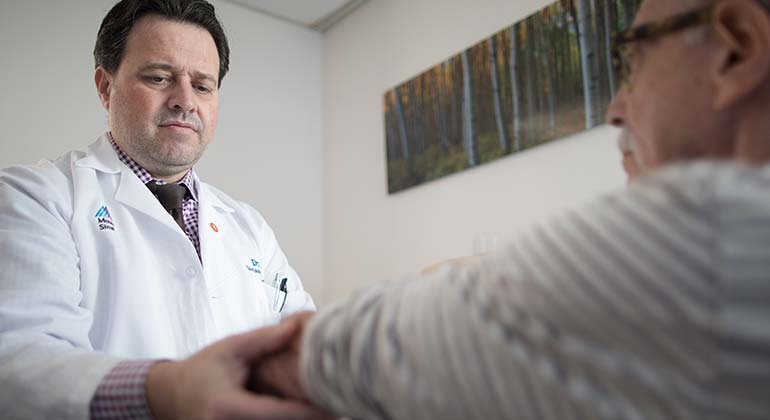Sjogren’s Syndrome

Sjogren’s syndrome is a disorder that causes dry eyes and mouth. It is an autoimmune disorder, which means that the immune system—that normally protects from infections instead attacks the body. With Sjorgren’s, the immune system strikes the glands of the eyes and mouth that secrete moisture. The disease varies in intensity. It often accompanies other autoimmune conditions, such as lupus and rheumatoid arthritis. At Mount Sinai, we have extensive experience diagnosing and treating this syndrome.
You might experience other symptoms, including:
- Fatigue
- Joint pain
- Swollen salivary glands
- Persistent dry cough Rashes or dry skin
- Vaginal dryness
The condition can also affect the kidneys and peripheral nerves and others.
The cause of Sjorgren’s is not known though there is a genetic component. In addition, it tends to affect women more often.
It can be difficult to diagnose Sjorgren’s because it varies so much from person to person. We use a combination of physical exams and other testing to determine if you have Sjorgren’s. These tests include:
- Blood tests
- Eye tests to assess the dryness of your eye and any damage to your cornea and tear production.
- Salivary gland biopsies (in selected cases) Biopsies to see if you have inflammation
Treatment of Sjorgren’s includes the use of artificial tears and topical eye ant-inflammatory medications. Regular follow-ups with an opthamologist and dentist is important as the dry mouth may increase the risk for cavities.
Why Mount Sinai
At Mount Sinai, we have highly trained and experienced rheumatologists who treat Sjogren’s syndrome. We also work closely with specialists throughout the Mount Sinai Health System and at the Icahn School of Medicine at Mount Sinai. This means we can refer you to the appropriate specialists, such as ophthalmologists, dentists, nephrologists, radiologists, and neurologists.